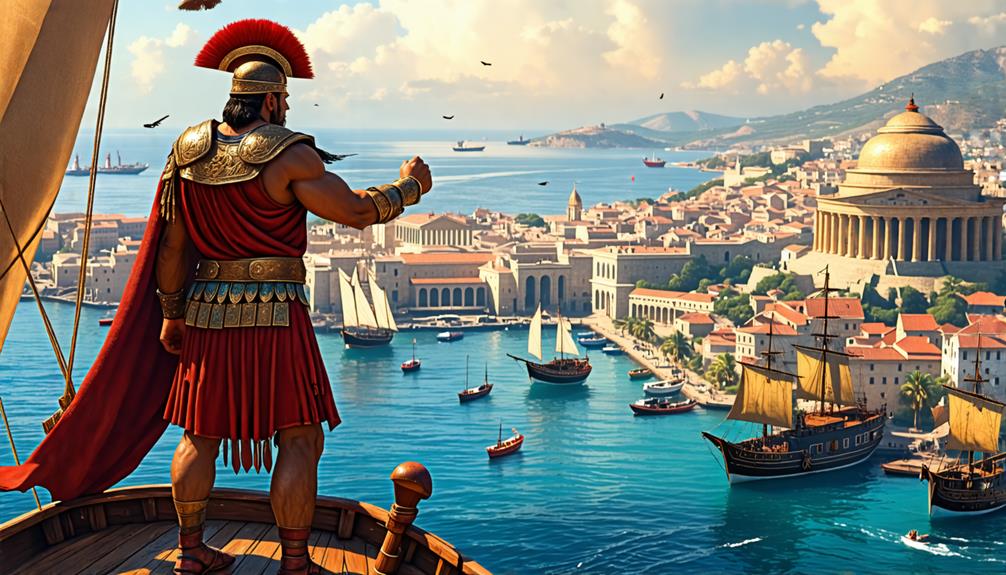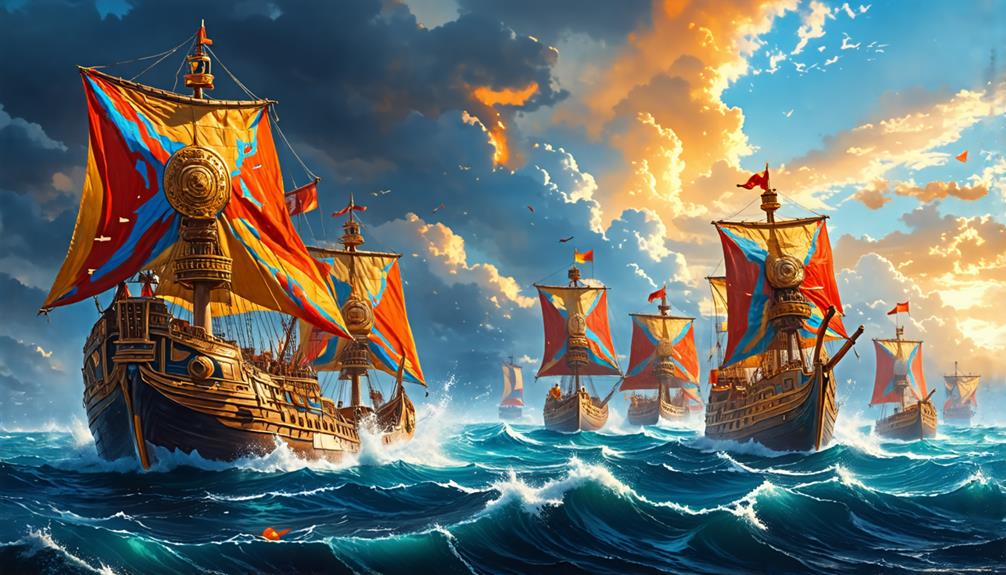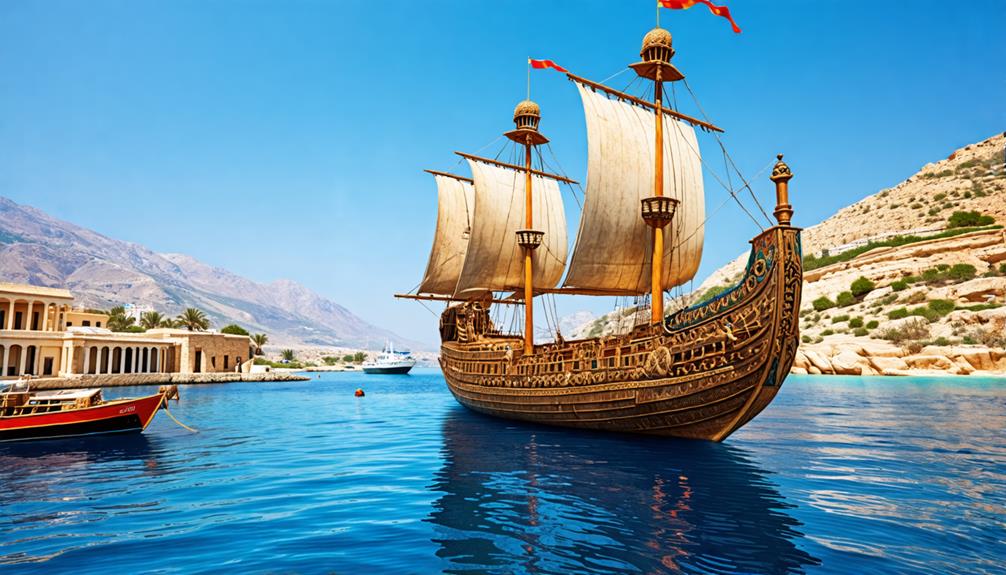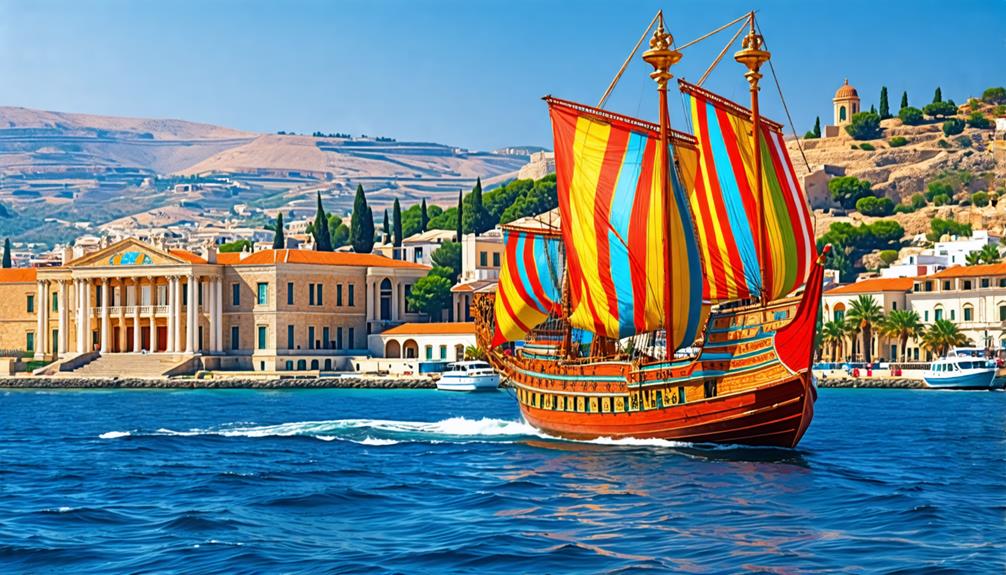Imagine a world where the Minoans, a powerful seafaring civilization, not only survived but thrived. What if they had expanded their thalassocracy, spreading their influence throughout the Mediterranean?
The Minoans were known for their artistic achievements, innovative spirit, and religious diversity. Had they become the dominant culture in the region, it would have transformed everything from architecture to theology and beyond.
How would this alternate history have changed the world we know today? The Mediterranean would have become a hub of Minoan culture, potentially influencing the development of later civilizations such as the Greeks and Romans.
The ripple effects could have altered the course of history in countless ways, from the evolution of language and religion to the balance of power among ancient empires.
Minoans Conquer the Mediterranean

In this alternate history, the Minoans' conquest of the Mediterranean would have had far-reaching consequences. One theory is that their advanced seafaring capabilities and strategic trading posts could have led to a more interconnected world, with increased cultural exchange and technological progress.
However, it's also possible that their dominance might've stifled the growth of other civilizations in the region. While the Minoans were the first to establish a thalassocracy in this scenario, other empires like the Phoenicians or the Greeks could have followed in their footsteps at a later date.
The legacy of Minoan conquest might've served as an inspiration or a cautionary tale for these subsequent powers, shaping their own strategies for controlling the Mediterranean.
Art and Architecture Transformed
In this alternative history, the Minoans' conquest of the Mediterranean would have profoundly influenced the region's art and architecture.
One theory is that their distinctive style, featuring vibrant frescoes, labyrinthine cities, and iconic bull motifs, would have spread to the lands they controlled, from Crete to Iberia. The Minoan aesthetic could have left an indelible mark on the region's cultural landscape.
It's worth noting that a similar scenario did occur later in history, with the Roman Empire's expansion and influence on art and architecture throughout the Mediterranean.
However, the Minoan style would have been quite different from the classical Roman style that emerged centuries later.
Clash of Civilizations

In an alternate history, the clashes between the Minoans and rival Mediterranean civilizations could have led to a variety of outcomes.
One possibility is that the Minoans, with their advanced naval technology and seafaring prowess, might've emerged victorious against the Hittites and negotiated a peace treaty with the Egyptians, solidifying their dominance in the region.
However, a stalemate with the Mycenaeans could have resulted in a prolonged period of tension and intermittent conflicts.
It's worth noting that similar scenarios of maritime rivalries and clashes for control of trade routes have occurred throughout history, such as the Punic Wars between Rome and Carthage or the Anglo-Dutch Wars of the 17th century.
The outcomes of these hypothetical Minoan clashes could have significantly altered the balance of power in the ancient Mediterranean world, potentially influencing the rise and fall of subsequent civilizations in the region.
Religious Syncretism and Innovation
In an alternate timeline, Minoan religious syncretism and innovation could have led to a more diverse and adaptable belief system. One theory suggests that by incorporating deities and rituals from Egypt, Mesopotamia, and other cultures, Minoan religion would have evolved into a cosmopolitan blend of traditions.
This openness to outside influences might've allowed Minoan religion to spread beyond Crete, becoming a major faith in the ancient Mediterranean world. It's possible that as the Minoan thalassocracy expanded, their syncretic religion would have found adherents in distant lands, leading to the emergence of new religious centers and pilgrimage sites.
While the Minoans themselves didn't achieve this level of religious influence, some scholars argue that similar processes of syncretism and innovation occurred in later periods. The Hellenistic era, for example, saw the blending of Greek, Egyptian, and Near Eastern religious traditions, resulting in the emergence of new deities and forms of worship.
Technological Advancements and Trade

In an alternate timeline, Minoan ingenuity and maritime prowess could have led to groundbreaking technological advancements and extensive trade networks. One theory is that this would have accelerated the development of navigation tools, shipbuilding techniques, and port infrastructure, enabling Minoan merchants to establish thriving trade routes and exchange goods and ideas with distant civilizations.
It's possible that the Minoans' innovative spirit and entrepreneurial drive would have significantly influenced the ancient world's economic landscape. If a similar scenario occurred at a later date, such as during the height of the Roman Empire or the Age of Discovery, it could have meant changes to the balance of power and the pace of technological progress in those eras.
Enduring Legacy in Modern Times
If the Minoans' seafaring expertise and entrepreneurship had endured to modern times, it's possible that maritime technologies would be far more advanced. Extensive trade networks might span the globe, with thriving port cities acting as centers of innovation and cultural exchange.
While the Minoans existed long ago, some believe a similar scenario played out centuries later during the Golden Age of Exploration. As European powers set sail to establish far-flung trade routes and colonies, they spread their influence to the Americas, Africa, and Asia.
Ultimately, whether the Minoans or colonial empires, such enduring legacies of exploration and commerce would have profoundly shaped the modern world. Some theorize that certain cultures and regions could have developed very differently as a result.
Conclusion
You stand at the helm, steering history's uncharted waters.
The Minoan ship of civilization, once thought lost beneath the waves, emerges triumphant. Its sails, adorned with vibrant frescoes, catch the winds of change.
As it charts a new course across the Mediterranean, the vessel becomes a floating agora, where ideas and cultures intertwine.
In this alternate timeline, the Minoan legacy endures, a lighthouse illuminating the path for generations to come.

Leave a Reply